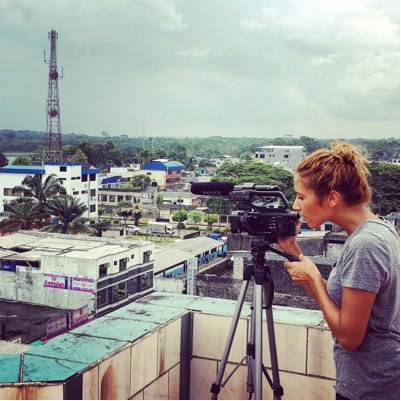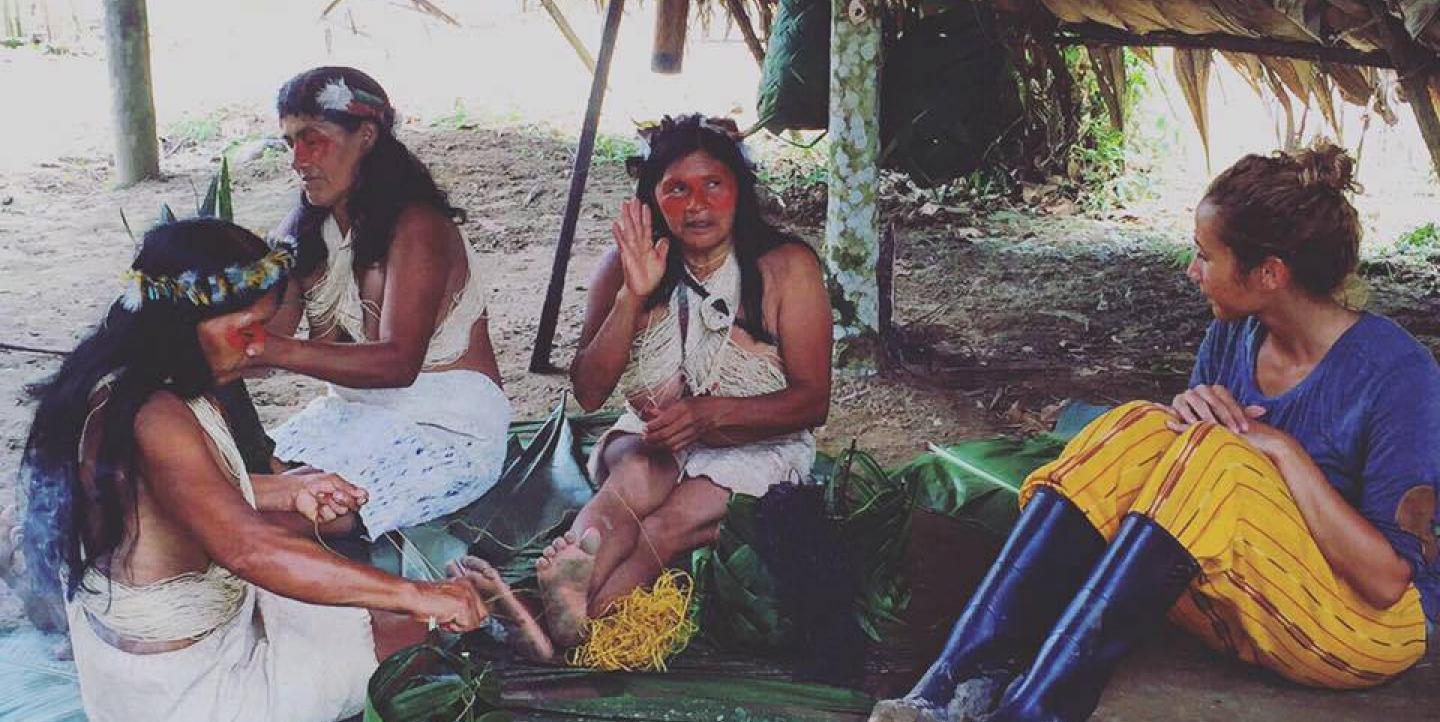Each month, IJNet features an international journalist who exemplifies the profession and has used the site to further his or her career. If you would like to be featured, email a short bio and a paragraph about how you have used IJNet here.
Early on, journalist of the month Kamilia Lahrichi had a passion for traveling the world.
“I started traveling on my own at a young age, when my parents would send me to learn English in Europe during high school,” she said. “I learned to adapt to different cultures and respect people from different walks of life.”
Born and raised in Morocco, Lahrichi has worked everywhere from Hong Kong to the Middle East to South America. Now based in Buenos Aires, Argentina, she has discovered several fellowships through IJNet’s opportunities section that have allowed her to keep a global perspective.
In June 2015, she covered the Deutsche Welle Global Media Forum in Bonn, Germany for the European Youth Press. Later that year, Lahrichi traveled to Brasília, Brazil as part of ICFJ’s Journalists’ Fellowship and Workshop on Road Safety. Additionally, Lahrichi has completed United Nations fellowships in New York and the Middle East.
When she’s not pursuing fellowships, Lahrichi is a freelance foreign correspondent. Her coverage of Argentine political, social and economic affairs has appeared in CNN International, The Wall Street Journal, The Huffington Post, USA Today and many others.
IJNet spoke with Lahrichi about lessons learned during her experiences:
IJNet: Which of your fellowships did you discover on IJNet? What things did you take away from these experiences?
Lahrichi: I found out about the vast majority of my fellowships on IJNet. Fellowships are priceless experiences that contrast significantly with schooling and traditional newsroom experiences. You learn about practical tools and face real-world issues. I was thrilled to realize all of the opportunities available for freelance journalists. Thanks to these international fellowships, I was able to travel across the globe.
I learned about many tools to report more effectively on sensitive topics. For instance, I have always been interested in pressing global health issues, but didn’t have the means to effectively cover traffic accidents or tobacco-related diseases. Thanks to these fellowships, I broadened my network of international health and development specialists. I was able to improve my reporting and investigative skills to better cover these topics back in Argentina.
 What’s the most challenging story you’ve ever done?
What’s the most challenging story you’ve ever done?
One of the most challenging stories I covered was the detrimental health and environmental impacts of agrochemicals on rural communities in Argentina, which I covered for VICE News in 2015.
While I obviously wanted to get both sides of the story, it is often difficult to get feedback from corporations involved in such sensitive matters. I also got negative feedback from the Cordoba Ministry of Agriculture after I published the piece, saying I was not doing my job properly and pressuring me to make changes — which I did not. It took me a good amount of time to investigate the topic; I spent 10 days in the city of Cordoba to meet doctors, people suffering from cancer and other diseases as well as government officials and agronomists to produce the most neutral story possible.
What tips would you have for someone hoping to become a freelance journalist?
I highly recommend starting by publishing pieces for free or for a low rate, just to get your name out there. Then, I would advise you to get an online portfolio in order to have your published work in one place.
Most importantly, I would suggest spending months — if not a year like I did — building a strong network of media contacts and commissioning editors in order to work with several outlets. When I first started freelancing, I would write twice a week for the same news outlet. When the website went bankrupt, I had no source of income overnight. From then on, I worked for multiple media outlets to avoid falling into a similar situation.
You’ve worked in countries that have very different cultures. Has it been challenging to navigate these cultural differences? Do the main tenets of journalism largely stay the same?
I feel comfortable navigating unknown places. I dislike routine and staying in my comfort zone. I thrive where most people would panic: on my own, on unknown soil with different people speaking a language I do not understand. I believe that journalism is not about cultures, but about people.
I do believe that the tenets of journalism should stay the same regardless of the country. That is why I decided to work as a freelancer for reputed international news outlets. I know their editorial standards are the highest in all the countries they work in.
I have found myself in tricky situations working with local news outlets in Lebanon or Argentina. However, I believe it is up to every journalist to take a stand in order to avoid following a bad editorial line or publishing biased information.
Images courtesy of Kamilia Lahrichi.

